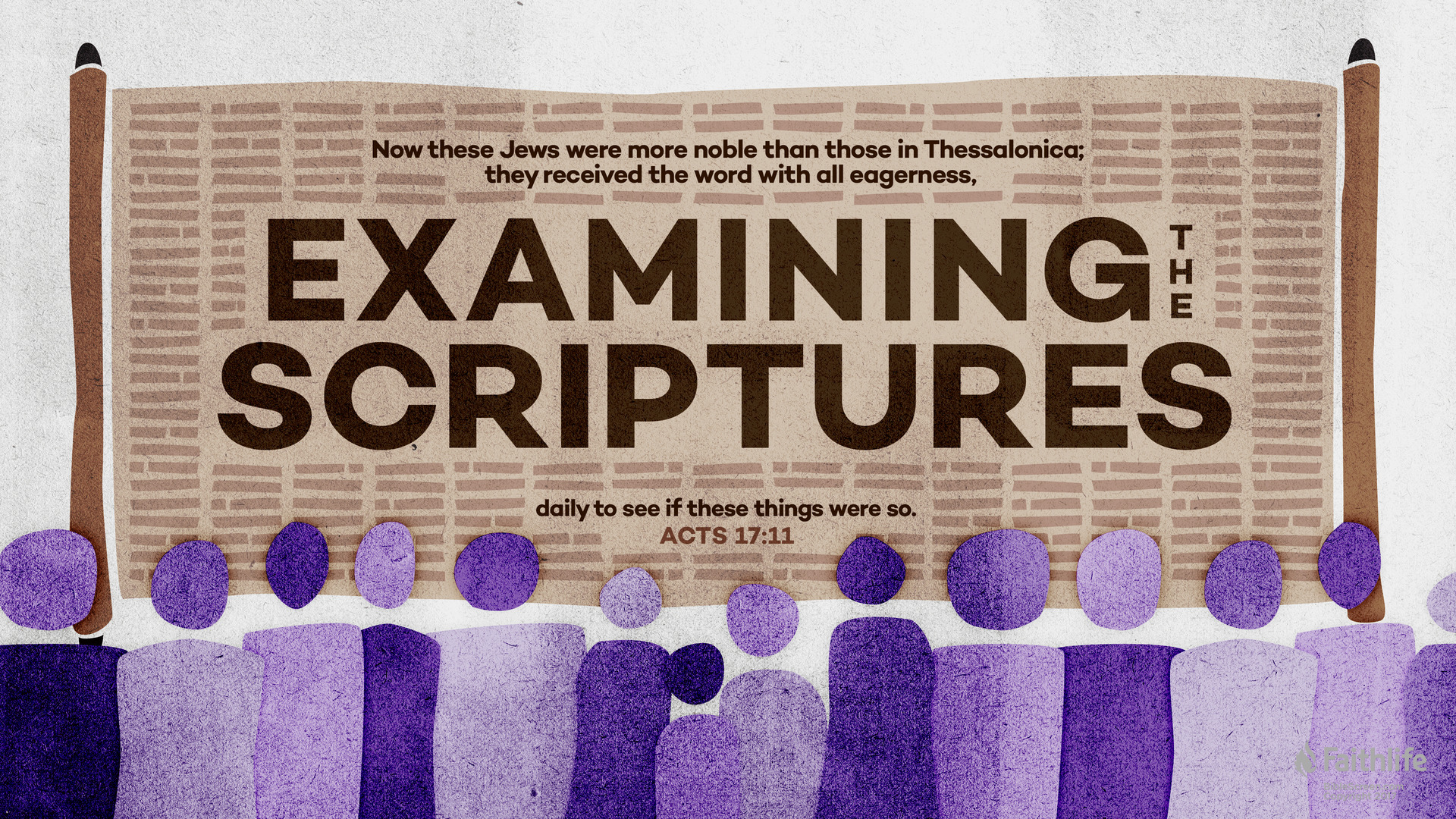Why do you believe the Bible? It is an ancient book full of errors and contradictions." We have all heard this many times. However, most conservative evangelical Christians disagree with this claim. They hold to a doctrine called the inerrancy of Scripture.
The place to start our discussion is with a definition of inerrancy and error. By inerrancy, we mean that when all the facts are known, the Bible-in its original manuscripts and properly interpreted-will be shown to be true and never false in all that it affirms, whether related to doctrine, ethics, or the social, physical, or life sciences. Three matters in this definition are noteworthy. First, there is the recognition that we do not possess all the information to demonstrate the truth of the Bible. Much data has been lost due to the passing of time. It simply no longer exists. Other data await archaeological excavation. Second, inerrancy is defined in terms of truth that most philosophers today take to be a property of sentences, not words. This means that all the indicative sentences, or statements, of the Bible are true. Therefore, on this definition, an error in the Bible would require that it made a false statement. Finally, all information in the Bible, whatever the subject, is true. That is, it accurately records events and conversations, including the lies of men and Satan. It teaches truly about God, the human condition, and heaven and hell.
The belief in inerrancy rests on at least four lines of argument: the biblical, the historical, the epistemological, and the slippery slope arguments.
The biblical argument is drawn from what the Bible has to say about itself and is the most important. This argument may be formulated in a circular and a noncircular way. It is circular when one claims that the Bible says it is inspired and inerrant and that this is true because it is found in an inspired and inerrant Scripture. It is not circular when claims are made that are verifiable outside the document. This is possible because the Bible makes historical and geographical statements that are verifiable independently. Inerrancy follows from what the Bible has to say about its inspiration. It is the exhaled breath of God (2 Tm 3:16) and is the result of the Holy Spirit's guidance of human authors (2 Pt 1:21). It is a divine-human book. Moreover, the accreditation of a prophet in the OT requires nothing less than complete truthfulness (Dt 13:1-5; 18:20-22). Can God's written communication meet any less a standard? It should be noted that both these oral and written forms of communication involve the human element. This shows that human agency does not necessarily imply the presence of error. The Bible teaches its own authority as well. Matthew 5:17-20 teaches that heaven and earth will pass away before the smallest detail of the law fails to be fulfilled. John 10:34-35 teaches that Scripture cannot be broken. Furthermore, the way Scripture uses Scripture supports its inerrancy. At times arguments in Scripture rest on a single word (Ps 82:6; Jn 10:34-35), the tense of a verb (Mt 22:32), or the number of a noun (G13:16). Finally, the character of God stands behind His word, and He cannot lie (Nm 23:19; 1 Sm 15:29; Ti 1:2; Heb 6:18).
A second argument is historical. While there have been those who disagree, inerrancy has been the normative Christian view throughout history. Augustine writes, "I have learned to yield this respect and honor only to the canonical books of Scripture: of these alone do I most firmly believe that the authors were completely free from error." Luther says, "Everyone, indeed, knows that at times they [the fathers] - have erred as men will; therefore I am ready to trust them only when they prove their opinions from Scripture, which has never erred." John Wesley gave a similar opinion: "Nay, if there be any mistakes in the Bible, there may as well be a thousand. If there be one falsehood in that book, it did not come from the God of truth."
A third argument is epistemological (based on what and how we know something). A helpful way to formulate this argument is to recognize that if the Bible is not entirely true, then any of it may be false. This is particularly problematic when some of the most important information communicated is not verifiable through independent facts. It teaches about an invisible God, angels, and heaven. Inerrancy requires that those claims of the Bible that are testable will be shown to be true once all relevant information is available. Critics of the Bible's full truthfulness point out numerous alleged errors. But in these cases, the passage in question may have been misinterpreted by the critic or not all relevant facts are brought to light. During the twentieth century, numerous claims of the Bible, thought to be in error, were shown to be true in the light of more information. If that is so, why should anyone believe what is unverifiable? Only an inerrant Bible assures us that what we read is true.
The fourth argument is the slippery slope (not a fallacy in this case). The argument states that inerrancy is so fundamental that those admitting errors into the Bible will soon surrender other central doctrines like the deity of Christ and/or the substitutionary atonement. The denial of inerrancy leads to greater doctrinal error. This does not happen in every case, but it is demonstrable as a trend.
Each of these arguments has been criticized. However, a common and fundamental objection to them contends this doctrine is meaningless since it is true only of nonexistent autographs (the original manuscripts). But is it meaningless? Not if two conditions are met: (1) we possess a sufficient number of high-quality copies of the autographs, and (2) there is a sophisticated discipline of textual criticism to use these copies in determining what the original must have said. Both of these conditions are met in the case of the Bible.
The fundamental issue is the Bible's teaching of its own inerrancy. And for those who are skeptical, evidence from science, archaeology, and history has supported this claim over and over again.













